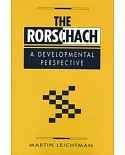The study of psychotherapy has often been limited to the ways in which cognitive and behavioral processes promote personal change. Introducing a ground breaking perspective, Greenberg and
Safran's compelling new work argues that the presently-felt experience of emotional material in therapy forms a vital underpinning in the generation of change. By including emotion as a
psychotherapeutic catalyst, the book offers a more complete and encompassing approach to the process of psychotherapy than has ever before been available.
EMOTION IN PSYCHOTHERAPY draws from the literature of both clinical and experimental psychology to provide a critical review of theory and research on the role of emotion in the process of
change. Providing a general theoretical framework for understanding the impact of affect in therapy, this unique volume describes specific change events in which emotions enhance the
achievement of therapeutic goals. Case examples and extensive transcripts vividly portray a variety of affective modes--such as completing emotional expression, accessing previously
unacknowledged feelings, and restructuring emotions--and illustrate in clear, practical terms how certain processes apply to particular patient problems. Moving beyond the standard
approaches to therapy, this volume offers an integrated approach that carefully consider's the client's state in the session that must be amenable to intervention as well as any given
intervention and its resulting changes.
Its attention to both the theoretical and practical considerations of implementing a balanced psychotherapeutic approach--combining behavioral, cognitive, and affective modes--makes this an
invaluable volume for practitioners and researchers of all orientations. The book will be of particular interest to clinicians seeking integrative approaches to psychotherapy, and to
academic psychologists concerned with expanding the paradigm of cognitive psychology.





















